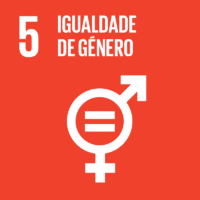Ciência_Iscte
Publicações
Descrição Detalhada da Publicação
Título Revista
Journal of Sexual Medicine
Ano (publicação definitiva)
2020
Língua
Inglês
País
Estados Unidos da América
Mais Informação
Web of Science®
Scopus
Google Scholar
Esta publicação não está indexada no Overton
Abstract/Resumo
Introduction: Several theoretical models and intervention programs overlook the importance of individual motivations for the decision to have condomless sex. For instance, people focused on promotion (ie, eager to pursue pleasure) report less intentions to use condoms, because they perceive a lower risk of acquiring sexually transmitted infections. Aim: We aimed at understanding to what extent individual motivations are predictive of condomless sex behavior among single individuals. Methods: A sample of 415 Portuguese individuals (254 women) with ages ranging from 18−46 years (M = 23.30; SD = 5.28) were recruited to a cross-sectional study. All participants were neither dating nor in a romantic relationship at the time of the study. The link to an anonymous web survey was shared in social networking platforms. Main Outcome Measure: The survey included self-reported demographic variables (eg, age and sex), recent condomless sex behavior, and previously validated measures assessing regulatory focus in sexuality, ability in sexual restraint, perceived control over condom use, perceived safety with sex partners, and salience of the condom use norm. Results: More than two-thirds of the sample had recently engaged in condomless sex. A logistic regression showed that condomless sex was more likely for participants predominantly focused on promotion in sexuality. It was also more likely among less educated participants, those with a lower ability to restrain their sexual behavior, those who perceive to have less control over condom use, those for whom the condom use norm was less salient, and those who perceived to be safer with their sex partners. No other results were significant. Clinical Implications: Our results can be informative to sexual health care professionals when planning strategies to increase condom use awareness, by considering the role of specific individual motivations. Strengths & Limitations: This is the first study showing that individual motivations uniquely contribute to the decision to have condomless sex. This study has 2 main limitations that constraint the generalizability of the findings: (a) cross-sectional data prevents us from establishing causality, and (b) individual data does not account for dyadic processes in sexuality (eg, condom use negotiation). Conclusion: Our findings showed that condomless sex results from an individual focus on seeking pleasure, a lack of control in sexual behavior, and a perception of sex partners as more trustworthy. Overall, these findings are likely to help researchers and health care professionals improving theoretical models predicting condom use and preventing the spread of sexually transmitted infections.
Agradecimentos/Acknowledgements
--
Palavras-chave
Condom use,Motivation,Regulatory focus,Sexual restraint,Perceived control
Classificação Fields of Science and Technology
- Medicina Clínica - Ciências Médicas
- Ciências da Saúde - Ciências Médicas
- Psicologia - Ciências Sociais
Registos de financiamentos
| Referência de financiamento | Entidade Financiadora |
|---|---|
| UID/PSI/03125/2013 | Fundação para a Ciência e a Tecnologia |
| IF/00402/2014 | Fundação para a Ciência e a Tecnologia |
| LISBOA-01-0145-FEDER-028008 | Fundação para a Ciência e a Tecnologia |
| PTDC/MHC-PCN/5217/2014 | Fundação para a Ciência e a Tecnologia |
Contribuições para os Objetivos do Desenvolvimento Sustentável das Nações Unidas
Com o objetivo de aumentar a investigação direcionada para o cumprimento dos Objetivos do Desenvolvimento Sustentável para 2030 das Nações Unidas, é disponibilizada no Ciência_Iscte a possibilidade de associação, quando aplicável, dos artigos científicos aos Objetivos do Desenvolvimento Sustentável. Estes são os Objetivos do Desenvolvimento Sustentável identificados pelo(s) autor(es) para esta publicação. Para uma informação detalhada dos Objetivos do Desenvolvimento Sustentável, clique aqui.

 English
English




